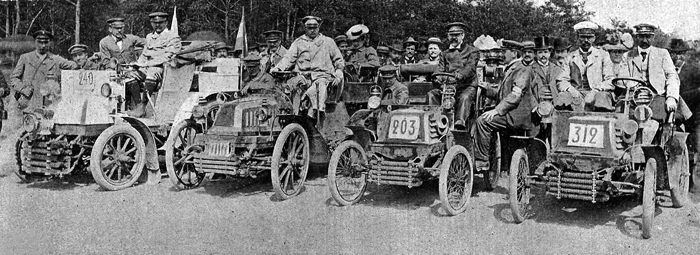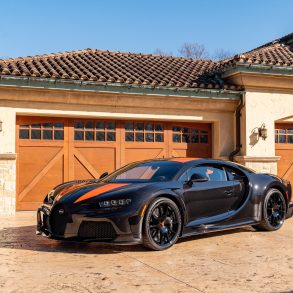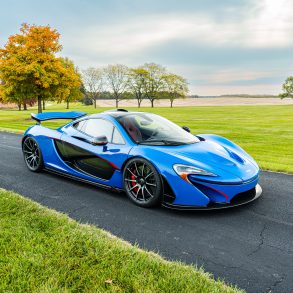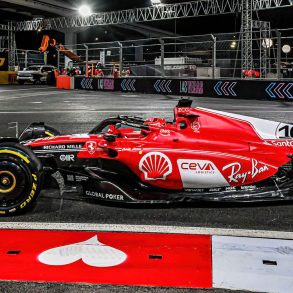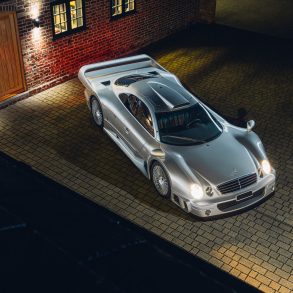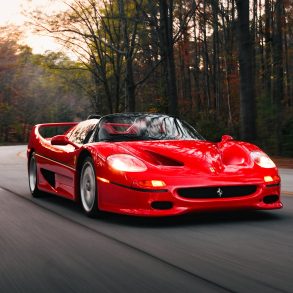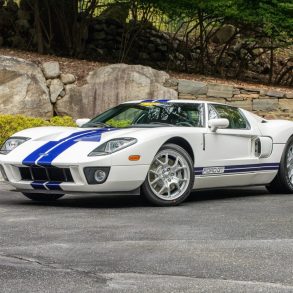1901 Paris to Berlin Race – Faster Than The Express Train
By Walter Wellman
Picturesque, indeed, was the scene at Fort de Champigny, on the outskirts of Paris, early in the morning of July 27th. As the first gray dawn-light crept down from the north. great crowds of men and women were to be seen along the boulevard. All through the night they had been coming from Paris—afoot, in automobiles, on bicycles, in swell carriages, in hired voitures, for which some had paid as high as 360 francs the night. There was a feast of lanterns and of headlights moving to and fro. Little could be heard but the shrill hoots of wheelmen’s horns, and the deeper bass of the automobile sirens. There was a hum of conversation—a babel of shouts.
By daylight the police had cleared the way. Officials were running about, excitedly endeavoring to get everyone into his assigned place. For a time the was filled with the grunting of huge automobile racers, the teuf-teuf of the voiturettes, and the sharp. short explosions of the motorcycles, as competitor after competitor moved to his station. As the favorites appeared, cries were heard here and there, ” Voila Fournier!” ” Voila Girardot!” or Farman or Charron, as the case might be. By half-past three too racing vehicles, each bearing its official number on a large placard, were drawn up, one after the other, each by a tree marked with the corresponding numerals. Just before 3.30—it was now almost broad daylight in the latitude of Paris – the timekeeper counted off the final seconds: “Dix, cinq, quatre, trois, deux, un—parlez!”
M. Giraud. in a giant racing machine. darted away on the long road to Berlin. Exactly two minutes later number two, M. Gilles Hourgières, started in pursuit of Giraud. Then Fournier moved up to the post and was sent away in his turn. He was number four, but number three had dropped out. After Fournier came Charron. Girardot, Rene de Knyff, famous chauffeurs all. And so for over three hours the work went on till the last of the too competitors had been dispatched upon his way to the German capital. Never before had there been so many competitors, never before such elaborate arrangements. For months the automobile clubs of France and Germany, with the co-operation of the clubs of England and Belgium, had been making preparations.
Contestants paid an entrance fee of 300 francs or less, and started in the order their applications were received. There were four classes – (1) automobiles weighing more than 1,450 pounds; (2) automobiles weighing from 880 to 1,450 pounds; (3) voiturettes weighing from 550 to 880 pounds; and (4) motorcycles weighing less than 550 pounds. The actual starters were forty-one heavy automobiles, of which two were steam and live alcohol; forty-seven light automobiles. ten voiturettes, and eleven motorcycles. Each vehicle in the two heavy classes were required to carry at least two men, side by side, and if the weight of the two travelers fell below 310 pounds the deficiency had to be made up in ballast.
All along the course from Paris to Berlin the road had been carefully surveyed. The dangerous points were marked by blue flags. Places at which full stops were required were denoted by yellow flags. Hundreds of placards indicated the course, so that at turnings and cross-roads no contestant need lose his way. By the cooperation of the local authorities the road was kept cleared during the hours of the race, all ordinary traffic being required to keep scrupulously to the right, leaving an open space for the flying vehicles. About fifty towns were “neutralized”; that is to say, all competitors were required to consume the same time in passing through them. At the entrance to each neutralized town a “control’ was established, and another at the exit. When a contestant arrived at the first control his time was taken by the official time-keeper and written down upon a card. This was handed over to a bicycle-pilot,who conducted the racer through the town at slow speed. Not till the legal time had elapsed was departure permitted from the other frontier. No vehicle could be pushed or pulled by any other persons than those it carried throughout the race.
So elaborate were the arrangements that more than 2,000 representatives of the automobile clubs — controllers, time-keepers. pilots. and flag men—were scattered along the course, to say nothing of the many thousands of police and soldiers who aided in keeping a clear way. So well was all this work done, and so careful were all the contestants to obey the rules, that no complaints or protests arose in any quarter. Of course the leading manufacturers were alert to the trade possibilities of the great race. One firm is reported to have incurred an expenditure of tom not including the cost of the machines it put into the contest. It sent out no fewer than seventy – seven mechanics, ready to make any needful repairs along the road. They were provided with tires, wheels, bolts, piston-rods, and many other parts, and were prepared to adjust them at a moment’s notice. An oil merchant scattered 1,500 gallons of petroleum along the route, to be taken up as needed by his customers. The value of the machines engaged in this contest runs up to high figures. Thirty of them cost from $5,000 to $8000 each, fifty more front $3000 to $5000. Great excitement that 27th of July in Paris! Bulletins were received every few minutes at the automobile headquarters along the Avenue de la Grande Amide. Great interest throughout Europe. Who was to win the first stage of the journey, from Paris to Aix-la-Chapelle? Telegrams from various towns indicated that a battle-royal was on between the crack chauffeurs.
At Epernay, eighty miles from Paris, Gilles Hourgières was first, but close behind him were Fournier, Charron, Girardot, Rene de Knyff, Farman, and other formidable competitors. They were all Frenchmen, these leaders. No German, no Englishman, was at the front. A few miles farther on Fournier secured the lead, and he was at once picked for a winner by all who bore in mind his remarkable performance in the race at Bordeaux a few weeks before. How fierce was the struggle at this stage of the race may be judged by the fact that at Sedan less than an hour separated the first and the tenth arrival. Unexpectedly early in the clay came news of the arrival at Aix-la-Chapelle. Fournier had covered the 283 miles in 6 hours and 28 minutes, an average speed of about 44 miles per hour, “neutralization” deducted. De Knyff was second in 6 hours 34 minutes; Voigt third in 6 hours 47 minutes. Jarrott, an Englishman driving a French machine, was the first of the foreigners, No. 13. Foxhall Keene, the only American in the race, was 18th. Madame du Gast, a plucky Frenchwoman, was 28th. The superiority of the heavy automobiles, with their great equipment of power, was shown by the fact that the first seventeen arrivals were of the first-class type, while few of the light auto¬mobiles or voiturettes made speed at all comparable with that of the leaders. At Aix-la-Chapelle the contestants were to rest for the night. Following the rules, each man upon arrival placed his vehicle in the enclosure officially designated for that purpose, where he and his assistants were allowed precisely fifteen minutes for giving attention to the machine.
The number of persons admitted for this period was limited by the number of passengers the vehicle had carried in the race. For instance, Fournier’s machine was permitted the attention of three men, having carried two passengers. But a voiturette or motor-cycle which had carried only its driver could be looked after by but one man in addition to the contestant himself. Next morning each chauffeur and his helpers were allowed one hour in which to prepare the machine for the day’s journey.
Next morning bright and early Fournier and his two helpers prepared their huge white racer for the day’s work. They put on new tires, examined all the valves and gear, took on a supply of petroleum. At five o’clock Fournier. smiling, his good machine well in hand, his trusty mechanic by his side, took his place at the starting-post, was given the word, and sped away for Berlin. He had twenty-one minutes’ time advantage over Antony, his nearest rival, thanks to his success of the first day. Twelve minutes later Antony, the dark horse,” the ” mad driver,” set out impetuously on the trail of his antagonist. For a time the race was hot. Antony vas determined to overtake the leader if sharp driving would do it. He had everything to gain, nothing to lose. Fournier, on the other hand. with the race in hand, with the scent of victory in his nostrils, had only to hold that which he had. When the road was straight and smooth and good they flew like the wind.
It is a race now for sure. The greatest chauffeurs in the world, driving the speediest and most powerful machines, are engaged in a desperate struggle. At Cologne more than a dozen racers pass within an hour. At Düsseldorf Girardot actually takes the lead from Fournier, though it is only a minute’s margin that separates them. Antony is reported coining at a mad pace. Every man in the race is on his mettle. His blood is up. One dust cloud follows another along the highway. Everywhere the two lines of waiting people —dense crowds in the towns and villages, thinner fringes in the rural districts, but people everywhere. As it had been in France and Belgium, so it is now in Germany. All the world loves a race, and from Paris to Berlin no need of guide-posts or placards to point the way. All the chauffeur has to do is to keep between the parallel lines of spectators stretching from town to town and from city to city.
Here the roads are not so good. There are many turns, and a turn is always a source of danger. Woe to the chauffeur who miscalculates speed and distance and rounds too fast. There are rough spots ; and the keenest eyes. the greatest skill, the best judgment are at a premium. Edge, one of the Englishmen, is thrown out of the race by his machine taking a leap in the air at a culvert and falling, to come down on all fours. Foxhall Keene has a similar experience, alighting in a potato-patch. One contestant loses forty-five minutes and his chance of victory by running over and killing a small boy.
Fournier bent low from his seat; one hand grasped the controller, the other the steering-gear. He was not nervous. Twenty years of wheel-racing (he was twice champion bicyclist of France and once of the world), scores of hard-won victories, a thousand struggles with the wind in his eyes and his hair in the wind, had inured him to the tension of such moments as these. But it was tension—there was no mistaking that. His face was haggard, dust-grimed; his shoulders, usually square like a general’s, drooped and rounded. His great goggles, black, uncanny, gave him the outward appearance of some new sort of demon, born of this high-keyed, time-killing, space-destroying age. His hands did not tremble, but they gripped the steel with a tense grip.
Bending low, his jacket buttoned tightly around hint to catch little wind, his assistant crouching at his feet out of range of the swift-flying currents of air produced by the mad flight of the machine, Fournier slipped the controller up to the last notch. Instinctively he tried to compress his body into yet smaller space; instinctively he thrust his head far forward, feeling a sharp pain in the back of his neck as he did so. A thousand times had he done this in the last three days; even the neck of an athlete will wince at last under the strain of many repetitions of that involuntary effort to crane forward on the outlook, as one rushes to the rail of a steamer and leans out over the water, vainly hoping to see another craft at a league’s distance. There was great need that Fournier should see. His eyes, his nerves all high-strung, were the only things that stood between him and instant death. For he was flying with the speed of the wind in its moments of cyclonic rage straight along the German highway near the royal town of Potsdam—flying at eighty miles an hour through a narrow lane between two black fringes.
He knew these dark borders of the white dusty path were composed of human atoms, because his cars—not his eyes—told him so. He could hear the shouts, “Bravo, Fournier! Bravo, Fournier!” He heard the strongest-lunged cry the first word: but the phrase was for him finished by another strong-lunged man forty yards farther on—so fast he flew! The two lines of people, with their variegated colours of coats and gowns and sunshades, and the brighter millinery hues of the women. Blended into two darkish streaks bordered with the flesh-tints of rows of ruddy faces. From these dark walls a roar of shouts and cries came out at him, rolled along with him ; he could hear it nimble and die away behind him—marks of the sensation produced by his meteoric passage.
Had he looked backward he would have seen the parallel bands of men and women fluttering, trying to break into the highway; two inner restraining walls of soldiers, each man gripping the outstretched hands of his two neighbors, trying to hold them. So great was the pressure from without that the walls wavered, stretched, elastic-like; more pressure, and they broke, as fist slipped from fist. The mob hurled itself into the road, buried itself in the cloud of dust, eager to see it knew not what—it was driven back by the police, gesticulating, shouting, shoving. Fournier had passed on his way to Berlin, but others were coming—Girardot, Brazier, Rene de Knyff, Charron, Farman; and the Government of the Kaiser had pledged itself to keep a clear way. German authority, German discipline, were on trial. So the road was quickly swept by the police and the soldiers; the masses were again pressed into shape at the margins; the restraining walls of burly figures, cemented together by gripped moist hands, were speedily reconstructed.
But Fournier saw none of this. He did not look backward. His work lay before him, where there were no clouds of dust— thanks to the prowess which had put all rivals to the rear – but always the open lane between the two windows of waiting mortals, the compressed human masses which were never at rest, but ever beating against the backs of the bulwarks in uniform. Now a small boy —the human institution that is the same the world over—squeezes through the wall and sprawls upon the highway. To Fournier he is a mere speck in the distance – a speck of dirt, or matter out of place. But the small speck raises a large problem. When that urchin rises to his feet, will he attempt to cross the road? Will he return to the side whence he came? Or will he lose his head amidst the cries and the excitement, and stand there right in the course? It seems a trifling thing: it is. But these are the problems on whose solution, rightly or wrongly, hangs success or failure. The decision must be reached, not through deliberation, not by calm consideration, not in minutes or even seconds, but in a flash. Here experience counts —long observation of average mortals in given situations. One glance, in which the figure of the sprawling lad is silhouetted upon the sensitive film of the brain- one glance, in which the master of the automobile measures every line and gesture, and from them reduces a probability of action, and Fournier’s decision is reached. He does not check his speed—he is going to chance it.
What if there is a mistake in his calculation or his intuition? In the two seconds of time which have elapsed while the visual impression was being carried to his brain, and while he was going through the subconscious process which revoked the natural impulse to slow down at the first sign of danger–the boy still sprawling in the dirt – in these two seconds the giant automobile had traveled 234 feet. The black speck now has become a large, flustered boy, picking himself up from the dust 30o feet away. From behind his great goggles Fournier’s eyes measure the distance and the corresponding timeless than three seconds. If the boy steps backward, all will be well; if he steps forward to the centre of the narrow path, someone else will win the international automobile race from Paris to Berlin, while Fournier stops to satisfy the law’s demands by attending the inquest. Now Fournier can hear the people shouting at the youthful intruder. Two hundred feet and two seconds remain. The boy starts backward, but he is too slow. He has poor calculation of distance and time. He may gauge the approach of swift locomotives, but the swifter automobiles are beyond his ken. Alt I A soldier thrusts out his hand, grabs the youngster’s jacket, and with a quick jerk of his forearm pulls him in. The big, white, racing machine rushes over the spot, amid guttural cries of relief from the excited multitude. Fournier’s flash of divination had flashed true. Fournier swept on. The throngs on either side of him grew denser. The white road, a mere path through a black mass, was always clear. All along the soldier-wall there are no stray vehicles or other obstacles. Through royal Potsdam, along the banks of the Spree, past beautiful castles, and the crowds are spreading wider every moment. Hoarser and more prolonged the cry of admiration and encouragement that rolls along with him. The road is good here, the grade is favorable, and the driver makes the most of it. Ahead the white path conies to an end, and runs plump into the dark masses.
In the history of automobile racing there was never a fiercer struggle than that on the road from Aix-la-Chapelle to Hanover. The most desperate contest was between Fournier and Antony. Fournier arrived first, but Antony made the faster journey. The latter had covered the 277 miles in the astonishing time of five hours and six minutes—fifty-four miles an hour ! Fournier’s time was five hours and twenty-four minutes. De Knyff and Girardot were only thirty minutes behind. Another night of rest for the racers whose overwrought nerves permitted them to sleep, a night of recuperation for the final struggle of the morrow. At five o’clock the race was resumed. By virtue of his achievements of the previous day Fournier was now the first to start. He need take no one’s dust so long as he can hold the lead. But can he hold it ? De Knyff, second man, is only six minutes behind. Girardot, who ran Fournier hard in Paris-Bordeaux, is well up. Charron and Farman, always dangerous men, are not far away.
A blue flag greets his eye, the official signal for slow speed, un passage dangereux. his a sharp turn in the road. Slipping the controller back to the third speed, Fournier approaches the turn. He is still going fifty miles an hour. The great machine rises; it virtually runs on two wheels ; the helper leans far out from it to counterbalance the effect of its momentum. The spectators gasp as they see the big racer poised in the air, sweeping round the turn. They cheer when it comes down on all fours and rushes away towards Berlin. Having reached a slight elevation in the road the hardy chauffeur turns for one quick glance behind him. It is enough, for, look¬ing over the dust-cloud which he himself had raised, he can see no rival within striking distance. Fournier smiles. He slackens speed. The crowds are pressing hard against the restraining walls, and something might break. With his good lead it is now needful only to avert accident and the result is assured.
Farther on, more blue flags, more turnings of the road. Fournier tries to speak to his mechanic, but cannot make himself heard; his words are swallowed up in the din of the excited people. They are shouting at him all manner of greetings which he cannot under¬stand. His heart leaps as he sees before him the flags and stands of the hippodrome at Tradderenaben, in the outskirts of Berlin. Berlin at las ! Half of Prussia appears to be there. Fournier spits from his lips some of the accumulated dust. Rising in his seat, he can see nothing but acres of humanity. They are all roaring at him. As he sweeps into the enclosure and appears upon the race track, the cries of 50,000 people drown all the noise of his motor. Everywhere flags are flying – the flags of Germany and France together.
As the gray racer and its grimy driver roll up before the tribune – filled with the fine people of the town – a German military band strikes up the ” Marseillaise ” in honor of the Frenchman who is victor of the greatest long-distance automobile race ever run. In spite of police, of soldiers, in spite of everything, the enthusiastic people surge out upon the track. They surround the big machine, eager to touch its body or the thick rubber tyres. The police fight them off at last, and clear a way so that Fournier can move up to the post, sign the register at the control, and complete his triumph in accordance with the rules. It is done. Paris- Berlin has been run and won. Henri Fournier is nearly smothered in the embraces of his friends from France. Upon his head they place a laurel wreath. His machine is covered with flowers. The president of the Automobile Club of Germany gives him official welcome. Then the crowd lift him upon their shoulders, and carry him away to clear the dust of the German highway from his throat in a loving cup of Weissbier.
After Race Report
“I never felt sure of winning till I had reached the post,” said Fournier ; ” within a mile – yes, a furlong of it – one may have a breakdown. A valve may go wrong, a rod snap, a tire explode. Is it the man or the machine that wins a race? It is both – and luck. As with the horse and the jockey, so with the automobile and the chauffeur. If either is deficient, the race is lost. Both are unavailing without good fortune. In all my races I have had good luck; I have never had a serious accident. “Here is where good driving counts. According to my theory, the good driver should never have a road accident, such as a collision with another vehicle, or a person or a tree, or post or fence. The good driver will never let his machine go too fast round a turn or over a rough spot. This is what he is there for – to take advantage of all favorable openings, to avoid all dangers. ” What do I regard as the secret of my success? Caution – yes, caution more than nerve. The reckless man will never win. He is the pitcher who goes too many times to the well.

Did you rest well at Hanover ?” I asked Fournier. “Yes. I rested,” he replied, ” but I did not sleep, neither there nor at Aix-la-Chapelle. I had not a wink of sleep between Paris and Berlin. Both nights I tossed in my bed. There was always before my eyes that narrow road bordered with human beings, always some little child straying out in the path in front of me.”
Sydney Morning Herald – August 7, 1901

The great motorcar races (writes the Berlin correspondent of the ” Times,” under date June 30) came to an end yesterday, and resulted in a brilliant victory for M. Fournier, who reached the goal in the trotting racecourse at Westend at 11h. 46m. 10s. The racecourse, which was opened at 7 o’clock in the morning, was gaily decorated with French, German, and Belgian flags. The first item on the programme was the arrival of the motor-car tourists from Paris, who left Potsdam at 8 o’clock, and the first of whom, Debacher, reached Westend at half-past 8. He was cordially cheered by the spectators, who by this time were fairly numerous, though at no stage of the proceedings were the stands at all crowded. The tourists followed very closely on one another, but from 10 o’clock till a quarter to 12, when M. Fournier arrived, there was a long wait. The spectators spent the time wandering about conversing with their friends and listening to the music. Very many of them strayed over the racecourse, which it was apparently not thought necessary to keep clear for the arrival of the racing cars. When M. Fournier was signaled at a quarter to 12 there was a scene of much excitement. The regimental band struck up the ” Marseillaise,” and a squad of soldiers who were present hurriedly cleared a narrow lane through the spectators, who thronged round the winning post. As the racing-car came tearing along the course amid clouds of dust deafening shouts were raised of ” Fournier ! Fournier ! ” and ” Vive la France ! ” M. Fournier stopped instantaneously on reaching the goal, and was at once surrounded by a cheering crowd, which broke through the line of soldiers, boarded the car, and hung a wreath round his neck. Excited friends seized on the winner, kissing him and shaking his hand. After he had removed his car from the winning post he was again captured by his friends and carried shoulder high through the crowd.

The arrangements at the racecourse were under the control of Count Talleyrand-Perigord. The spectators, who were several thousand in number, included Duke Adolf Friedrich of Mecklenburg, Prince and Princess Henry of Pless, the Duke of Ujest, the Duke of Ratibor, the Prince of Thurn and Taxis, Count Wedel, and many other well-known members of Berlin society. After the last of the racing cars had arrived a procession was formed, in which the competitors in the race, the tourists, and many members of the Automobile Club took part. The long line of motor-cars then proceeded through Charlottenburg, the Thiergarten, and Unter den Linden to the motorcar exhibition near the barracks of the Alexander Guards Regiment. In the course of the afternoon many of the French racers and tourists were seen with their motorcars in the principal streets of Berlin, and attracted considerable attention.

The winner, M. Fournier, is a member of one of these firms. But in Germany a number of influential people appear to have thought the opportunity favorable for promoting the political detente between the two countries, which has always been part of the Emperor William’s foreign policy. In this sphere, as Bismarck was never tired of repeating, ” Qui trop embrasse mal streint,” and in the opinion of competent observers neither the recent reception of General Bonnal here nor the Paris-Berlin race has made the slightest difference for better or for worse in the sentiments of the mass of the French nation or of their leaders towards Germany.
How Fast Do They Go?
Eighty miles an hour was often reached on the best stretches with favorable gradients. Eighty miles an hour! Can you understand what that means? A mile in forty-five seconds! One hundred and seventeen feet in one second! While traveling on a fast railway train take out your watch and time the seconds from one mile-post to another. You will rarely find the number fifty-five. The fastest single mile ever made by a locomotive, so far as is known, was in thirty-two seconds, and that on the best of steel tracks with a sharp down-grade. But here is a mile in forty-live seconds upon a country road.
Imagine yourself in the seat with Fournier or Antony. At forty miles an hour your eyes, if unprotected by goggles, weep like Niobe, and the tears, instead of coursing down your cheeks, run back upon your temples. At fifty miles an hour, unprotected eyes go blind. At sixty miles an hour. a pebble in the path may cause the great racer to leap like a panther. At seventy miles an hour, one cannot hold to his seat without seizing and gripping something. At eighty miles an hour, only the hardiest of chauffeurs like Fournier can keep breath in body without use of a face-mask that covers nostrils and mouth. At eighty miles an hour you travel the length of an American passenger train while turning your head for the swiftest sort of glance at the fleeting landscape. If you were traversing Broadway at that speed and lifted your hat to a lady at Thirty-fourth Street you would put it back on your head at Thirty-eight. You would cross twenty-seven intersecting streets in one minute. At eighty miles an hour one would travel from New York to Chicago in eleven and a half hours instead of twenty-four now used by the fastest trains.
At eighty miles an hour the Empire State Express would pass from New York to Buffalo in five hours and a half instead of in the eight hours and a quarter which it now employs. When one comes to think what eighty miles an hour actually means, it is not surprising that the racing chauffeurs had their hearts in their mouths when they saw a child standing in the course before them.
It is true that even at this tremendous speed a big automobile may be brought to a dead stop in seventy-five yards, if one wishes to put on the brakes sharply, perhaps wreck his machine, possibly pitch himself out forward and break his neck. But stopping with the brakes is the smallest part of it. Suppose Fournier had found it necessary to stop for the lad in the street near Potsdam. It would have taken him three seconds to go through the preliminary mental process and to disconnect; that is 350 feet. It would have taken three seconds to get the brake gear in motion and the brakes actually applied that is 350 feet more. Add seventy-five yards for the operation of the brakes to the stopping point, and we have a total of 925 feet traveled from the instant the chauffeur reached his destination. It is thus easy to see why the automobile racer must carry a good set of nerves in his personal equipment; and it is not difficult to understand why Fournier, after a sleepless night in Paris before the start, should lie a night at Aix-la-Chapelle and another night at Hanover with that black-bordered white path, in which stood a human figure, (lancing ever before his eyes.
The race of automobiles is to the swift and to the sure. Fournier ran with alternating courage and caution. “Mad” Antony ran with recklessness ever. Not far from Hanover, while a good second, he met with an accident which threw him out of the race. Fournier, driving carefully on, was first at Berlin. In seventeen hours, dime minutes, and forty-three seconds he had traversed the 745 miles which lie between Paris and Berlin – an average speed of almost forty-four miles an hour. Next was Girardot, an hour and six minutes later – ” Girardot the Eternal Second.” as the French call him, from the fact that this was his third time second in great long-distance races. Four others, De Knyff, Brazier. and H. Farman. ran the course in less than twenty hours. Madame du Gast finished in twenty-seven hours. handicapped by the weight of flowers thrown upon her machine at every village. Forty of the 109 starters actually reached Berlin, the slowest journey of all being thirty-one hours and forty-eight minutes.
A noteworthy performance was that of Osmont on a motorcycle – only three hours and fifteen minutes behind the winner. A great achievement. surely, this journey over country roads from the capital of France to the capital of Germany in seventeen hours. The Nord Express, the fastest train between the two cities, uses an hour more. But even greater speed was made in the race from Paris to Bordeaux; for there the distance was shorter, the roads better. In that race Fournier made the astonishing average of nearly fifty-seven miles an hour.
1901 Paris-Berlin Race race was divided in three parts
- June 27th Paris-Aachen. 285 miles
- June 28th Aachen-Hanover. 278 miles
- June 29th Hanover-Berlin. 186 miles
Number of Entries
- 100 cars
Times
- Fournier -16 hours 5 minutes, 44.12 miles per hour
- Girardot – 17 hours 7 minutes, 43.40 miles per hour
- René de Knyff – 17 hours 42 minutes 43.24 miles per hour
- Brasier – 17 hours 42 minutes, 41.97 miles per hour
- H. Farman – l8 hours 21 minutes, 40.49 miles per hour
- Charron – 18 hours 51 minutes 39.41 miles per hour
- Axt – 18 hours 58 minutes 39.38 miles per hour
- Osmont – 19 hours 15 minutes 38.60 miles per hour
- L. Renault – 19 hours 31 minutes, 38.07 miles per hour
- Jarrott – 19 hours 34 minutes, 37 97 miles per hour
- Chauchard – 19 hours 36 minutes, 37.93 miles per hour
- Hourgieres – 19 hours 38 minutes, 37 86 miles per hour
- Heath – 19 hours 43 minutes, 37.68 miles per hour
- Giraud – 19 hours 51 minutes, 37.43 miles per hour.
Awards
- Fournier wins the Kaiser’s Cup, the prizes of the Grand Duke of Luxembourg, and of the city of Hanover
- Maurice Farman wins King Leopold’s cup for the best time to the Belgian frontier
- Giraud wins the prize of the Grand Duke of Mecklenburg
- Werner wins the Sevres vase of President Loubet for the first Germain car
- L. Renault wins the prize offered by M. Pierre Baudin


